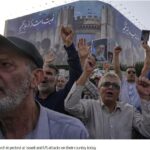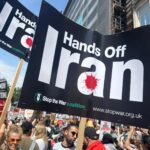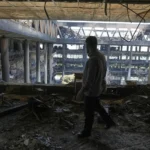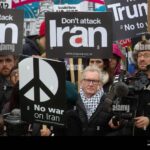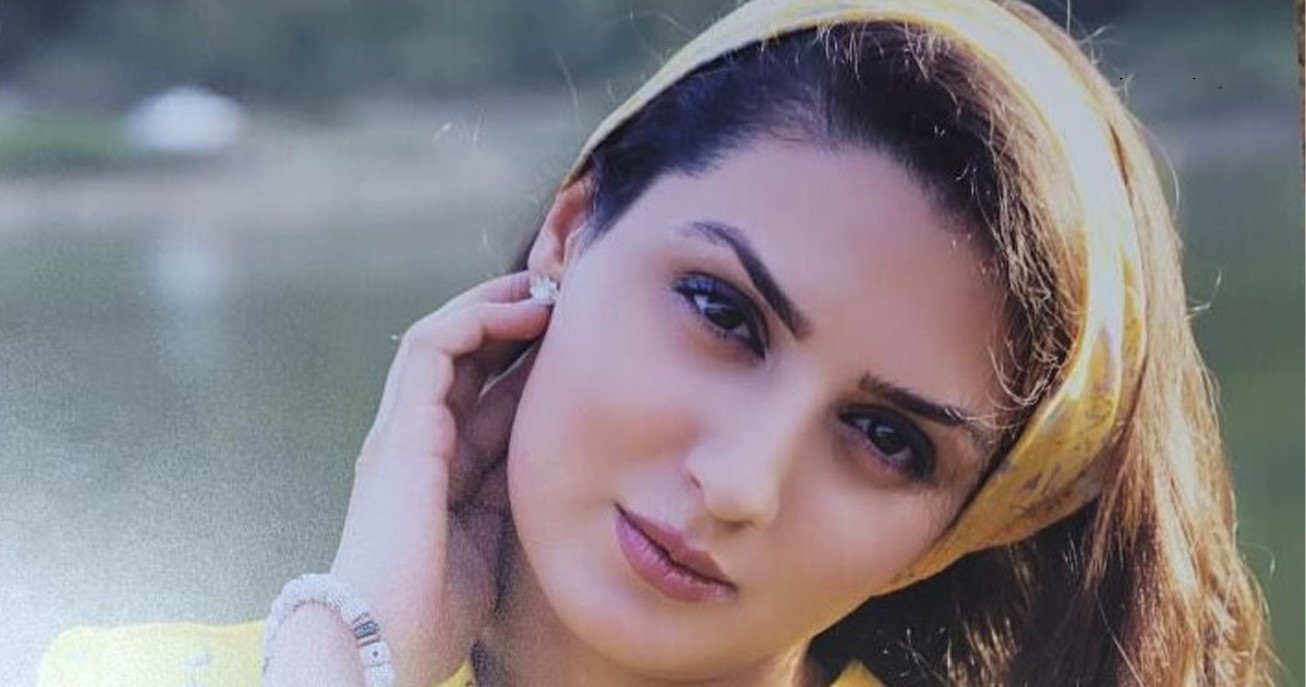
Ghastly murder of woman physician once more reveals the true nature of the ruling regime in Iran for those left under any doubt!
CODIR shares in the widespread condemnation in Iran that has met the news of the abduction and murder of Dr. Aida Rostami, the latest high-profile killing carried out by the Islamic Republic’s security forces amidst the ongoing popular uprising against the ruling dictatorship.
The body of Dr. Rostami, a 36-year-old physician, was returned to her family by authorities in Iran bearing horrific signs of mutilation and torture on Tuesday 13 December having disappeared the evening before while treating injured protesters at a residential address in Tehran.
Iranian people, with the country’s women and youth often at the forefront, have been bravely taking to the streets across the country for months now – ever since the death of 22-year-old Mahsa Amini on Friday 16 September following her mistreatment at the hands of the “morality police” – despite growing threats and brutal suppression carried out by the security forces acting on the commands of the regime’s leaders.
According to the latest statistics from human rights organisations, at least 500 people, including 57 minors, are known to have been killed and hundreds more injured and maimed in the current wave of unrest so far. Around 18,000 have been arrested in connection with the protests during the same period.
Against this backdrop, injured protesters are often afraid to attend hospitals or clinics to receive medical treatment owing to the risk of then being detained by regime forces and subsequently tortured, prosecuted, imprisoned, and even killed.
It was in these circumstances that Dr. Rostami – a member of a benevolent (though non-state) organisation that provides medical, educational, and advocacy outreach services to marginalised groups and communities in Iran – was working to treat injured protesters on the evening of Monday 12 December at a private residential address in the Shahrak-e Ekbatan area of Tehran. At one point in the evening, Dr. Rostami left the address to collect sterilisation equipment that she urgently needed and had run out of. This was the last time she was seen alive. It is believed that she was tailed from the address by regime intelligence agents.
The following day, her family received a call from a local police precinct telling them that Dr. Rostami had died in a car accident and that her body was ready to be collected from a local morgue for burial.
However, a source close to the Rostami family has revealed that someone from the medical examiner’s officesubsequently informed them that their daughter’s injuries were not consistent with those of a car crash victim and that she had in fact suffered a violent death, the cause of which they [the medical examiner’s office] had been pressurised not to reveal.
Her family reportedly had to insist to view the body before security forces eventually relented and allowed them to do so.
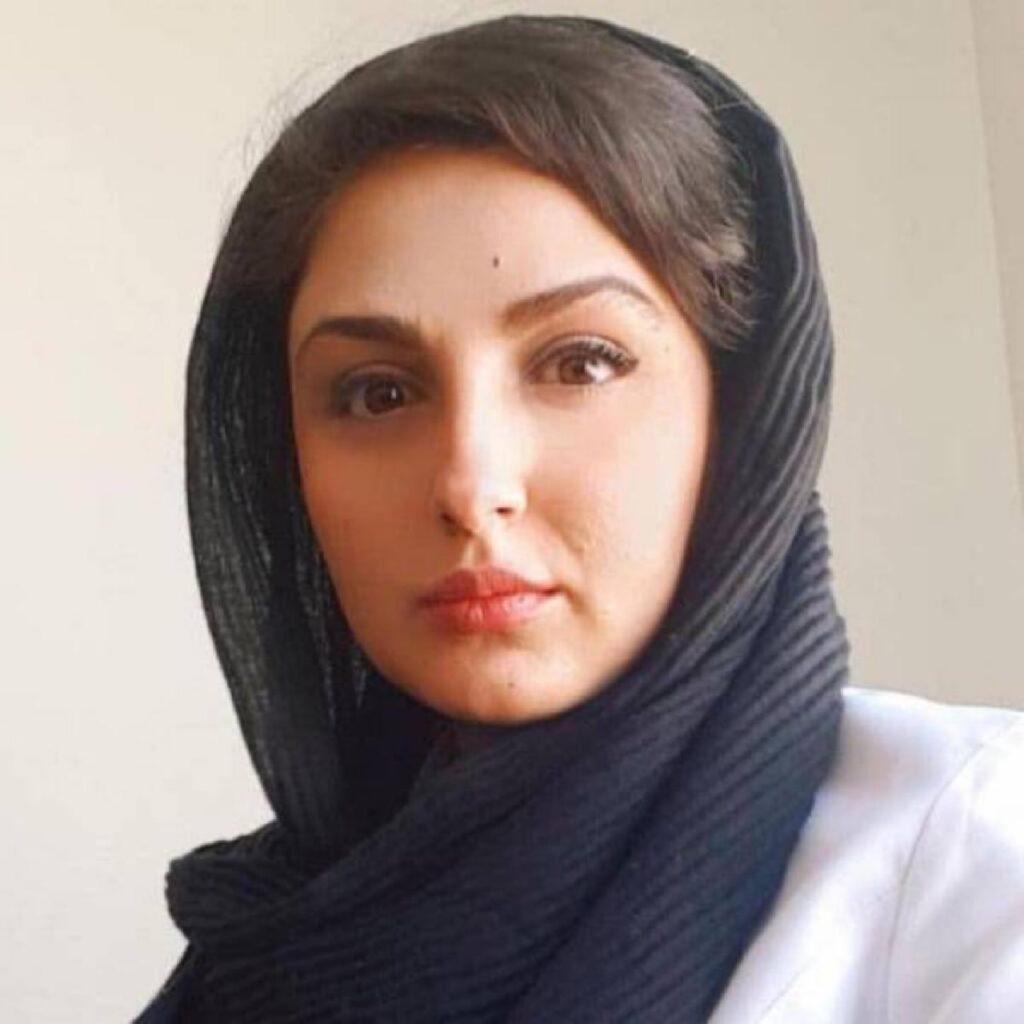
Upon inspection of Dr. Rostami’s body, one side of her face appeared to have been crushed and disfigured beyond recognition; one of her eyes was completely missing; both of her hands were broken; and, ominously, severe bruising and marking around her abdominal and pelvic area were noted.
The source close to the family added, “It is simply not possible that when you are driving and have an accident, both of your hands break, your lower torso gets bruised, and your eye completely comes out!”
The family asked the police to show them their daughter’s vehicle and the location at which the car accident was alleged to have occurred. The authorities flatly declined both requests.
Regime officials then attempted to placate the family. They informed them that a plot had been allocated for Dr. Rostami in Tehran’s Behesht-e Zahra cemetery – a sprawling burial ground officially reserved for the pious and faithful – and that she should be quickly buried there. The family declined and produced their daughter’s last testamentin which she expressed the wish to be buried in her home city of Gorgan, in provincial north-eastern Iran.
On Tuesday 20 December, crowds gathered in the streets of Gorgan to mark the seventh day after Dr. Rostami’s killing. These gatherings and processions quickly turned into furious anti-regime protests, with locals venting their sheer disgust at the horrific circumstances surrounding the murder of one of their own, bringing the city – the capital and administrative-commercial centre of Golestan province – to a standstill. By nightfall, regime militia and security forces – some of whom had been redeployed from elsewhere – were still struggling in vain to contain the unrest in the area.
The shocking murder of Dr. Aida Rostami coincides with an increasingly fevered situation inside Iran with fierce repression being meted out by a ruling dictatorship desperate to somehow cow a restive population into submission… A dictatorship upon which the reality -that of a people who clearly demonstrate that they have had enough and that of a default recourse to brute force that no longer has its desired effect [for the regime] – is beginning to dawn.
The incident also came as the Islamic Republic regime signalled its intent to push ahead with the sham trials of those detained in relation to the ongoing protest movement and the executions of those arraigned and convicted on capital charges such as “enmity with God”. Two such protesters, Mohsen Shekari and Majid-Reza Rahnavard, both 23 years old, were hung after so-called trials which fell well below international legal standards and anything resembling the core tenets of due process – even though the authorities in Iran had insisted that all of those convicted would have the chance to appeal against their charges and sentences. Despite the international outcry which followed the news of these executions, senior Islamic Republic officials – notably including the chief of the judiciary in Iran, Gholam-Hossein Mohseni-Eje’i – have called upon the judges to apply more of these capital charges to the protesters brought before them and to move swiftly to carry out the death sentences upon those convicted on such grounds.Iranian human rights activists have recently stated that according to their estimates, at least 100 of the detained protesters due to be brought before the courts imminently are facing charges which carry a mandatory death sentence.
The reason that CODIR has sought to highlight the murder of Dr. Aida Rostami is not because of its exceptional or standalone nature in terms of the repression doled out by the theocratic dictatorship ruling Iran- particularly when it comes to the defenceless women that tragically fall within its crosshairs. On the contrary, the case of Dr. Rostami illustrates the sheer depths to which this regime will go to spread fear and terror amongst the defiant people of Iran – ultimately with the aim of preserving its own survival at all costs!
CODIR repeats its unequivocal condemnation of the brutal murder of Dr. Aida Rostami and demands that its perpetrators be swiftly brought to justice. We call upon the recently-launched independent investigation into the deteriorating human rights situation in Iran, being carried out under the auspices of the UN Human Rights Council, to add the case of Dr. Rostami to its ambit. CODIR also joins the calls for an international campaign of pressure upon the Islamic Republic dictatorship to bring an immediate and permanent halt to the executions of those arrested merely because of their involvement with the popular protests since 16 September. Furthermore, we repeat our demand for the release of all political prisoners and prisoners of conscience currently incarcerated in the prisons and detention centres of the regime.
The Islamic Republic authorities bear the ultimate responsibility for the fate and welfare of all those held in its custody and for its compliance with international laws and conventions to which it is a signatory. Iran’s authorities must be left under no misunderstanding in this regard as well as sure that they will be held accountable for any transgressions.
CODIR requests that trade union affiliates consider writing to the embassy of the Islamic Republic of Iran to make clear their opposition to the repression and terror being inflicted on the long-suffering people of Iran for merely daring to voice their defiance and opposition to the cruel policies of the ruling regime. We also kindly ask that individuals consider writing a brief letter or communication to their local MP, drawing their attention to the worsening situation inside Iran and requesting that they write to the embassy of the Islamic Republic of Iran on similar grounds – as well as use their platform in parliament to draw attention to the plight of the people of Iran – thereby bringing more pressure to bear upon the Islamic Republic authorities at this critical moment.







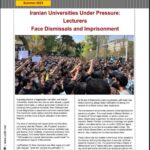





 Posted in
Posted in 
